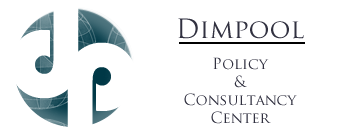French – Turc relations in the era of Sarkozy
Dimpool Analysis Team
GIZEM AKTAS
13 March 2012

[wpcol_1half id=”” class=”” style=””]
Over the decades, relations between Turkey and France have certainly been marked by many crises, but each time, the seniority of trade between the two countries, the influential presence of culture Francophone in Turkey allowed them to overcome and bounce back positively.
Some analysts think that France has developed the diplomatic failures since 2007 after Sarkozy was elected. Between the two countries, a qualitative regression first was reached in January 2001, when the French parliament adopted a law: “France recognizes the Armenian genocide of 1915”. This act precipitated the deterioration of the relationship between the two states.
Despite this, Chirac administration supported the opening of the criteria Helsinki in 2005, and Turkey’s EU membership. Negotiations between Turkey and EU began in 2005 but Paris currently blocks many chapters. Actually nothing, to be surprise because Nicolas Sarkozy had already made election promises to block Turkey’s EU membership while his electoral campaign.
Nicolas Sarkozy hammered that Turkey is not European nor geographically, nor by its history or its culture and opposing the prospect of integration. According to French right-wing parties, a country culturally Muslim cannot be part of the EU. This is why, the official line of France’s dogged refusal opening five chapters – agriculture, regional policy, European citizenship, institutions, and monetary union -.
President N. Sarkozy confirmed its opposition to the possibility for Turkey to become one day a member of the EU. However, Sarkozy propose a project for Union for the Mediterranean.
The Union for the Mediterranean launched with great fanfare in Paris in 2008 at the initiative of Nicolas Sarkozy. The Union includes 43 countries with 27 of the European Union, Turkey, Israel and Arab countries bordering the Mediterranean, had a goal to revitalize the Euro-Mediterranean dialogue. It is clear that this project has been shelved closets. The last summit was scheduled November 2010 and was postponed sine die.
EU or Armenian genocide issues are not only example of crises between France and Turkey. In 2010, while negotiations between the six powers negotiating and spinning in Tehran the Iranian nuclear issue Ankara with Brazil has offered his good offices. They tried to reach agreement between Iran and western countries –France, England, USA-. This was an important moment which Turkey has an active role in international scene, not being same side with France or USA.
[/wpcol_1half] [wpcol_1half_end id=”” class=”” style=””]
In 2011, Turkish Prime Minister Recep Tayyip Erdoğan proposed his “roadmap” for a peaceful end to the Libyan crisis, but the initiative did not succeed. The Arab Spring has also put the spotlight on Turkey, became the model proving that Islam and democracy are perfectly compatible.
Recep Erdogan was against the armed intervention. Therefore, Nicolas Sarkozy did not invite Turkey to the top of the Elysée, the day of triggering strikes in Libya. He said, “Why invite a country that was against? Frankly, it’s extravagant, though, why so afraid of Turkey?”. Within NATO, in April, it took a last-minute mediation of U.S. Secretary of State Hillary Clinton to overcome the serious Franco-Turkish dispute that threatened to paralyze the operation in Libya.
In September, the eagerness of Nicolas Sarkozy to visit with David Cameron, Libya, before Erdogan makes no step had testified. The Turkish leader had just started a tour of the countries of the Arab revolt, welcomed feature. This was, in the eyes of Nicolas Sarkozy, a recovering hypocrite military effort conducted by others.
Field page for reconciliation today is Syria: the two countries seem to phase to overcome the regime of Bashar al-Assad, based on the Arab League, sanctions, and even multiple ideas vague – “buffer zone” and “humanitarian corridors”. On the one hand, France believes to have a responsibility, especially after the Libyan case, and it would deprive Iran of its ally, the Assad regime. The other, Turkey is concerned both the influx of refugees and the instrumentalisation of the Kurds by the regime in Damascus.
Hugh Hope, expert from Turkey in the think tank Crisis Group, compares the French-Turk relationship to “a couple who divorced” and seek to reconnect. Hugh Hope observes that Turkey “cannot do everything, in Middle East, but it can be useful. France has an extraordinary influence on the state of the Turkish public in very emotional way”[1]. However, within the AKP –justice and development party- , some calculate that everything will be easier if, after 2012, Nicolas Sarkozy is no longer in business.
[1] Natalie Nougayrède, L’ouverture Turque de Nicolas Sarkozy, Le monde, 02/12/2011, p.21.
[/wpcol_1half_end]
